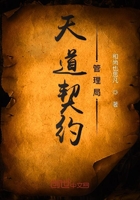Nothing; but you, my sweet man, may perhaps imagine that they do not see;and certainly, Euthydemus, you do seem to me to have been caught napping when you were not asleep, and that if it be possible to speak and say nothing--you are doing so.
And may there not be a silence of the speaker? said Dionysodorus.
Impossible, said Ctesippus.
Or a speaking of the silent?
That is still more impossible, he said.
But when you speak of stones, wood, iron bars, do you not speak of the silent?
Not when I pass a smithy; for then the iron bars make a tremendous noise and outcry if they are touched: so that here your wisdom is strangely mistaken; please, however, to tell me how you can be silent when speaking (I thought that Ctesippus was put upon his mettle because Cleinias was present).
When you are silent, said Euthydemus, is there not a silence of all things?
Yes, he said.
But if speaking things are included in all things, then the speaking are silent.
What, said Ctesippus; then all things are not silent?
Certainly not, said Euthydemus.
Then, my good friend, do they all speak?
Yes; those which speak.
Nay, said Ctesippus, but the question which I ask is whether all things are silent or speak?
Neither and both, said Dionysodorus, quickly interposing; I am sure that you will be 'non-plussed' at that answer.
Here Ctesippus, as his manner was, burst into a roar of laughter; he said, That brother of yours, Euthydemus, has got into a dilemma; all is over with him. This delighted Cleinias, whose laughter made Ctesippus ten times as uproarious; but I cannot help thinking that the rogue must have picked up this answer from them; for there has been no wisdom like theirs in our time. Why do you laugh, Cleinias, I said, at such solemn and beautiful things?
Why, Socrates, said Dionysodorus, did you ever see a beautiful thing?
Yes, Dionysodorus, I replied, I have seen many.
Were they other than the beautiful, or the same as the beautiful?
Now I was in a great quandary at having to answer this question, and Ithought that I was rightly served for having opened my mouth at all: Isaid however, They are not the same as absolute beauty, but they have beauty present with each of them.
And are you an ox because an ox is present with you, or are you Dionysodorus, because Dionysodorus is present with you?
God forbid, I replied.
But how, he said, by reason of one thing being present with another, will one thing be another?
Is that your difficulty? I said. For I was beginning to imitate their skill, on which my heart was set.
Of course, he replied, I and all the world are in a difficulty about the non-existent.
What do you mean, Dionysodorus? I said. Is not the honourable honourable and the base base?
That, he said, is as I please.
And do you please?
Yes, he said.
And you will admit that the same is the same, and the other other; for surely the other is not the same; I should imagine that even a child will hardly deny the other to be other. But I think, Dionysodorus, that you must have intentionally missed the last question; for in general you and your brother seem to me to be good workmen in your own department, and to do the dialectician's business excellently well.
What, said he, is the business of a good workman? tell me, in the first place, whose business is hammering?
The smith's.
And whose the ****** of pots?
The potter's.
And who has to kill and skin and mince and boil and roast?
The cook, I said.
And if a man does his business he does rightly?
Certainly.
And the business of the cook is to cut up and skin; you have admitted that?
Yes, I have admitted that, but you must not be too hard upon me.
Then if some one were to kill, mince, boil, roast the cook, he would do his business, and if he were to hammer the smith, and make a pot of the potter, he would do their business.
Poseidon, I said, this is the crown of wisdom; can I ever hope to have such wisdom of my own?
And would you be able, Socrates, to recognize this wisdom when it has become your own?
Certainly, I said, if you will allow me.
What, he said, do you think that you know what is your own?
Yes, I do, subject to your correction; for you are the bottom, and Euthydemus is the top, of all my wisdom.
Is not that which you would deem your own, he said, that which you have in your own power, and which you are able to use as you would desire, for example, an ox or a sheep--would you not think that which you could sell and give and sacrifice to any god whom you pleased, to be your own, and that which you could not give or sell or sacrifice you would think not to be in your own power?
Yes, I said (for I was certain that something good would come out of the questions, which I was impatient to hear); yes, such things, and such things only are mine.
Yes, he said, and you would mean by animals living beings?
Yes, I said.
You agree then, that those animals only are yours with which you have the power to do all these things which I was just naming?
I agree.
Then, after a pause, in which he seemed to be lost in the contemplation of something great, he said: Tell me, Socrates, have you an ancestral Zeus?
Here, anticipating the final move, like a person caught in a net, who gives a desperate twist that he may get away, I said: No, Dionysodorus, I have not.
What a miserable man you must be then, he said; you are not an Athenian at all if you have no ancestral gods or temples, or any other mark of gentility.
Nay, Dionysodorus, I said, do not be rough; good words, if you please; in the way of religion I have altars and temples, domestic and ancestral, and all that other Athenians have.
And have not other Athenians, he said, an ancestral Zeus?
That name, I said, is not to be found among the Ionians, whether colonists or citizens of Athens; an ancestral Apollo there is, who is the father of Ion, and a family Zeus, and a Zeus guardian of the phratry, and an Athene guardian of the phratry. But the name of ancestral Zeus is unknown to us.
No matter, said Dionysodorus, for you admit that you have Apollo, Zeus, and Athene.
Certainly, I said.
And they are your gods, he said.
Yes, I said, my lords and ancestors.















